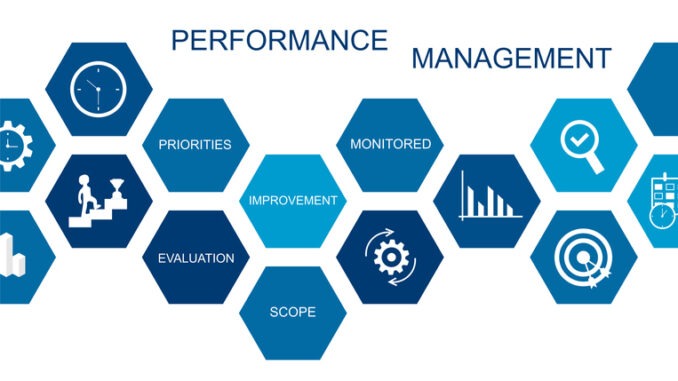
In this article, Kevin Parker explores strategies for school business managers to optimise performance management processes, guidance for staff on how to request performance management and the benefits of engaging in this crucial activity
Effective performance management is critical to the success of any educational institution. For school business managers, delivering robust performance management systems can lead to improved staff performance, enhanced student outcomes and a more efficient and harmonious workplace.
Strategies for School Business Managers
Establish Clear Objectives and Metrics
School business managers should set clear, measurable objectives aligned with the school’s strategic goals. This includes defining specific performance metrics for different roles, ensuring they are realistic and attainable. These metrics should be regularly reviewed and adjusted as necessary to reflect changing priorities or circumstances.
Implement Regular and Structured Reviews
Regular performance reviews are essential. These should be structured and scheduled at consistent intervals, such as quarterly or bi-annually. During these reviews, managers should provide constructive feedback, recognise achievements, and identify areas for improvement. Structured reviews foster a culture of continuous improvement and keep staff motivated and engaged.
Provide Professional Development Opportunities
Investing in professional development is a key aspect of performance management. School business managers should identify training needs through performance reviews and facilitate access to relevant courses, workshops, and certifications. Professional development not only enhances staff skills but also demonstrates the school’s commitment to their growth.
Foster Open Communication
Effective performance management relies on open and honest communication. Managers should encourage a two-way dialogue, allowing staff to express their concerns, aspirations and feedback. This can be achieved through regular meetings, anonymous surveys, or suggestion boxes. Creating a culture of transparency builds trust and improves morale.
Leverage Technology
Utilising performance management software can streamline the process and provide valuable insights. These tools can track progress, set reminders for reviews and compile data for analysis. By leveraging technology, school business managers can ensure a more organised and efficient approach to performance management.
Create a Supportive Environment
Performance management should not be perceived as punitive but as a supportive process aimed at personal and professional growth. School business managers should emphasise the positive aspects of performance management, such as career development and the recognition of achievements. This supportive approach can enhance staff engagement and commitment.
How Staff Should Request Performance Management
Understand Its Importance
Before requesting performance management, staff should understand its significance. Performance management is not just about evaluation but also about personal development and career progression. Recognising its benefits can help staff approach the process with a positive mindset.
Prepare a Case
When requesting performance management, staff should prepare a case highlighting why it is necessary. This might include examples of how regular feedback could improve their performance, instances where lack of guidance has been a hindrance, or aspirations for career advancement that require specific support.
Choose the Right Time
Timing is crucial when making such a request. Staff should choose a moment when their manager is not overwhelmed with other tasks, ensuring they have the time and focus to consider the request seriously. Scheduling a dedicated meeting can help in this regard.
Be Clear and Specific
Clarity is key when requesting performance management. Staff should be specific about what they are seeking—whether it’s more frequent feedback, additional training, or a structured review process. Clear communication helps managers understand the request and respond appropriately.
Highlight Mutual Benefits
Staff should emphasise how performance management will benefit both themselves and the school. Improved performance can lead to better student outcomes, more efficient work processes and a more positive school environment. Highlighting these mutual benefits can make a compelling case for the request.
Why You Should Ask for Performance Management
Professional Growth
Performance management provides structured opportunities for professional growth. Regular feedback and professional development help staff identify their strengths and areas for improvement, guiding them towards career advancement and personal development.
Enhanced Job Satisfaction
Engaging in performance management can lead to higher job satisfaction. When staff receive recognition for their achievements and constructive feedback to overcome challenges, they feel valued and motivated. This, in turn, can lead to a more fulfilling work experience.
Improved Performance
Performance management helps staff set clear goals and receive the support needed to achieve them. This structured approach can lead to improved performance, benefiting both the individual and the institution. Enhanced performance contributes to a positive reputation for the school and better outcomes for students.
Greater Accountability
Regular performance reviews foster a culture of accountability. Staff are more likely to take ownership of their responsibilities and strive for excellence when they know their performance is being monitored and assessed. This accountability leads to a more professional and committed workforce.
Better Communication
Asking for performance management encourages open communication between staff and managers. This dialogue can lead to a better understanding of expectations, more effective collaboration, and a stronger sense of community within the school.
In conclusion, effective performance management is a powerful tool for school business managers, enhancing staff performance, job satisfaction and overall school success. Staff should not hesitate to request performance management, recognising its value in fostering professional growth, accountability and improved communication. By embracing performance management, schools can create a thriving, supportive and efficient educational environment.



Be the first to comment